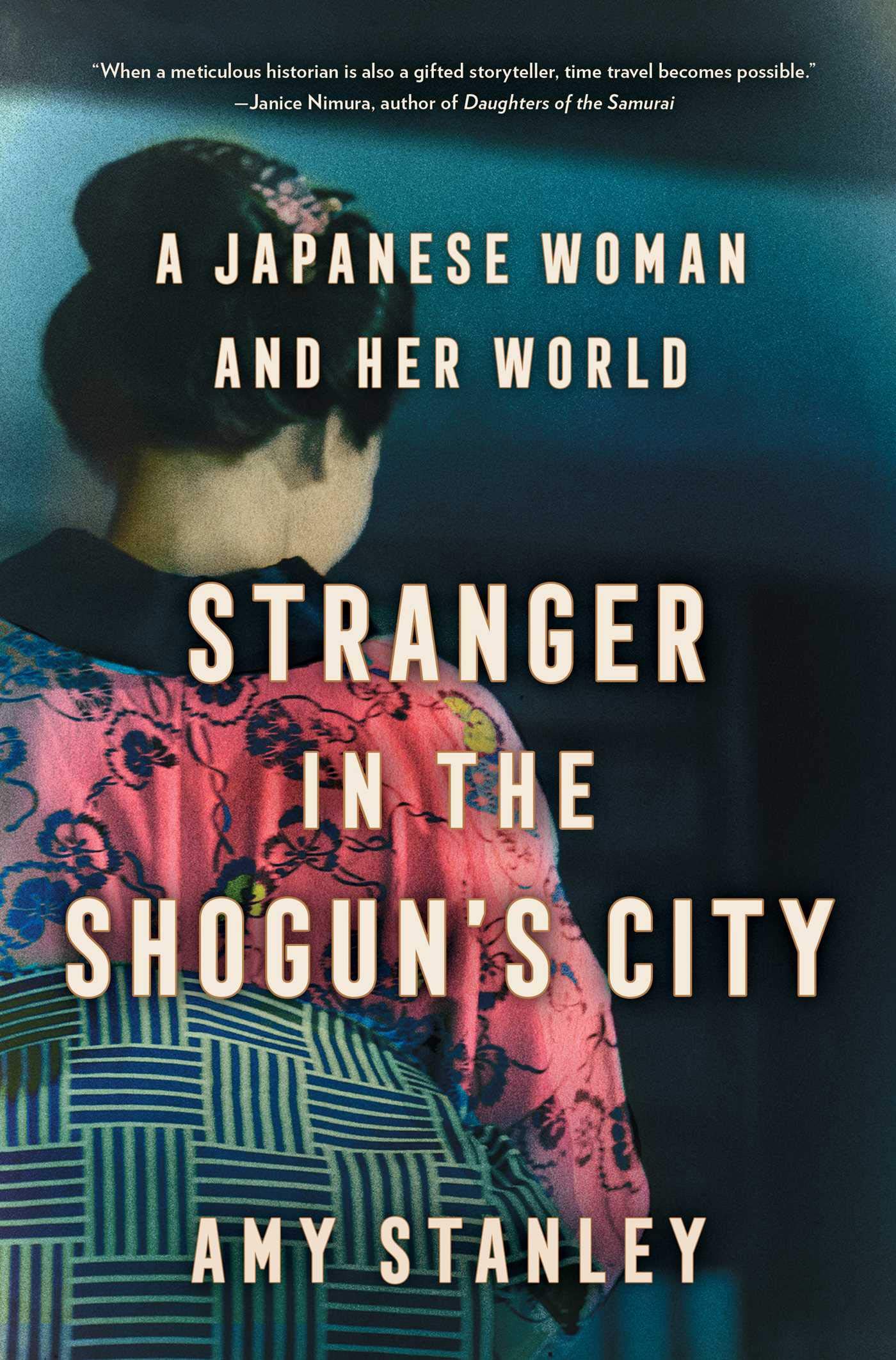Stranger in the Shogun’s City: A Japanese Woman and Her World by Amy Stanley (Scribner)
You have that just right: Amy Stanley tells the story of how Edo became Tokyo through the life of Tsueno, daughter of a Buddhist priest in a rural province at a moment that Japan’s transformation is taking root. Tsueno attends school, learns to sew and dreams of the big city.
At age 12, she is married off and dispatched to an even more remote province. Three failed marriages later, she literally walks for weeks on a horrific journey to reach Edo where, impoverished and degraded, she proves to be a skillful survivor, finding a form of independence to which she clings, even after she marries a louche of a samurai. She dies in 1853, just before Commodore Perry’s arrival in Japan.
Remarkably resilient and tenacious, Tsueno was also rebellious, troublesome and not entirely likable. And her death brought me to tears.
Stanley renders Tsueno’s messy life, unique struggles and the quotidian particulars of her world so richly that this Japanese woman from another era becomes achingly human and resonant. While Edo dwells in collective memory, Tsueno emerges as a sort of every-woman who transcends time and is more than a vessel to represent Edo’s transformation into Tokyo and Japan’s path to power.
Stanley, an historian of early and modern Japan, happened to find a letter from Tsuneno hidden in an online archive online which led her to Japan and the discovery of a rich archive of letters written by Tsueno which had been saved by her family, along with a trove of its documents. Stanley is quite understated about this dedication and accomplishment. Nonetheless, as she explains in the book, she reads and speaks Japanese, but the brushstrokes of 200 years ago posed quite a challenge. Stanley photographed everything from the archive, and painstakingly translated it all to create a narrative of Tsueno’s life through her very detailed and personal letters.
Stanley has recovered a lost world, and readers will understand what it felt like to be a rebellious woman trying to reinvent herself in an unforgiving world. Drawing on her knowledge of the history, Stanley contextualizes the letters which enhances their power. So, it’s a biography of a woman, but also of a portrait of what would become a great world city and its evolving culture.
This biography is such a sharp reminder of the importance of archives. I fear that we will soon face a future in which we will have to rely on redacted government documents. The victors will dominate the narrative, while the stories of the powerless will vanish unless we work to preserve them. With fewer, slimmer newspapers, email replacing letters and so much news disappearing online, we need a coordinated effort to create new archives, especially for those who may not have reached a moment of fame, or infamy.



